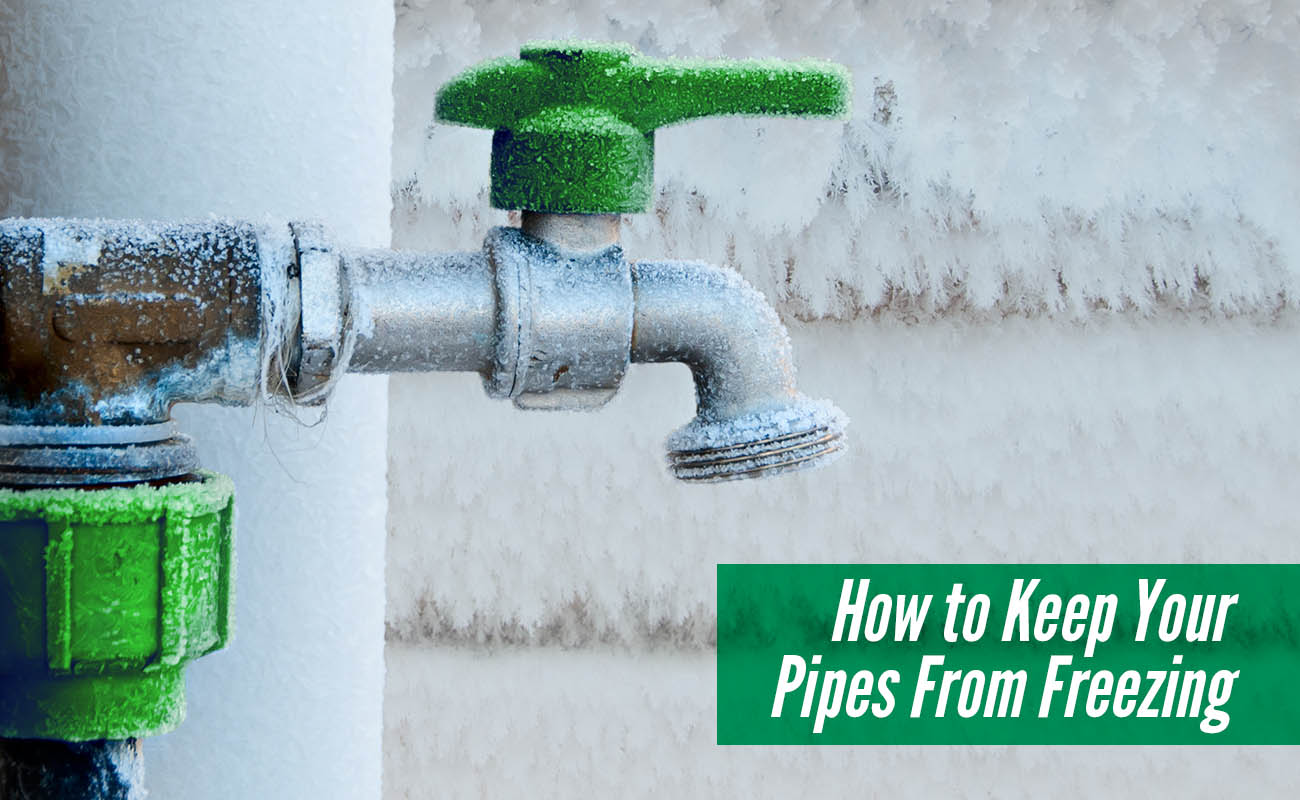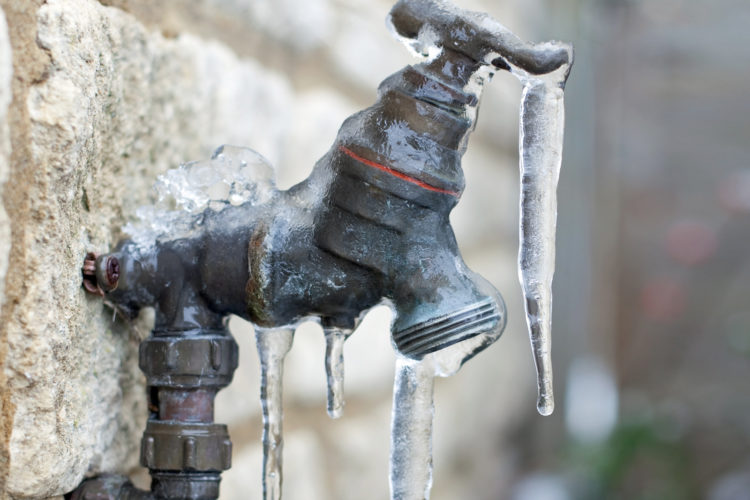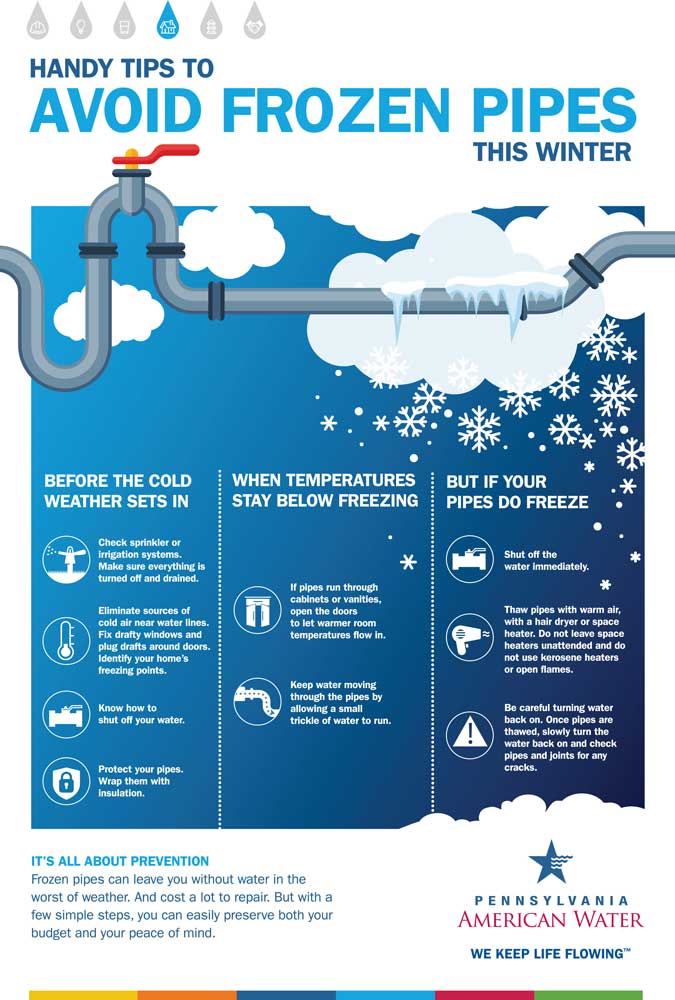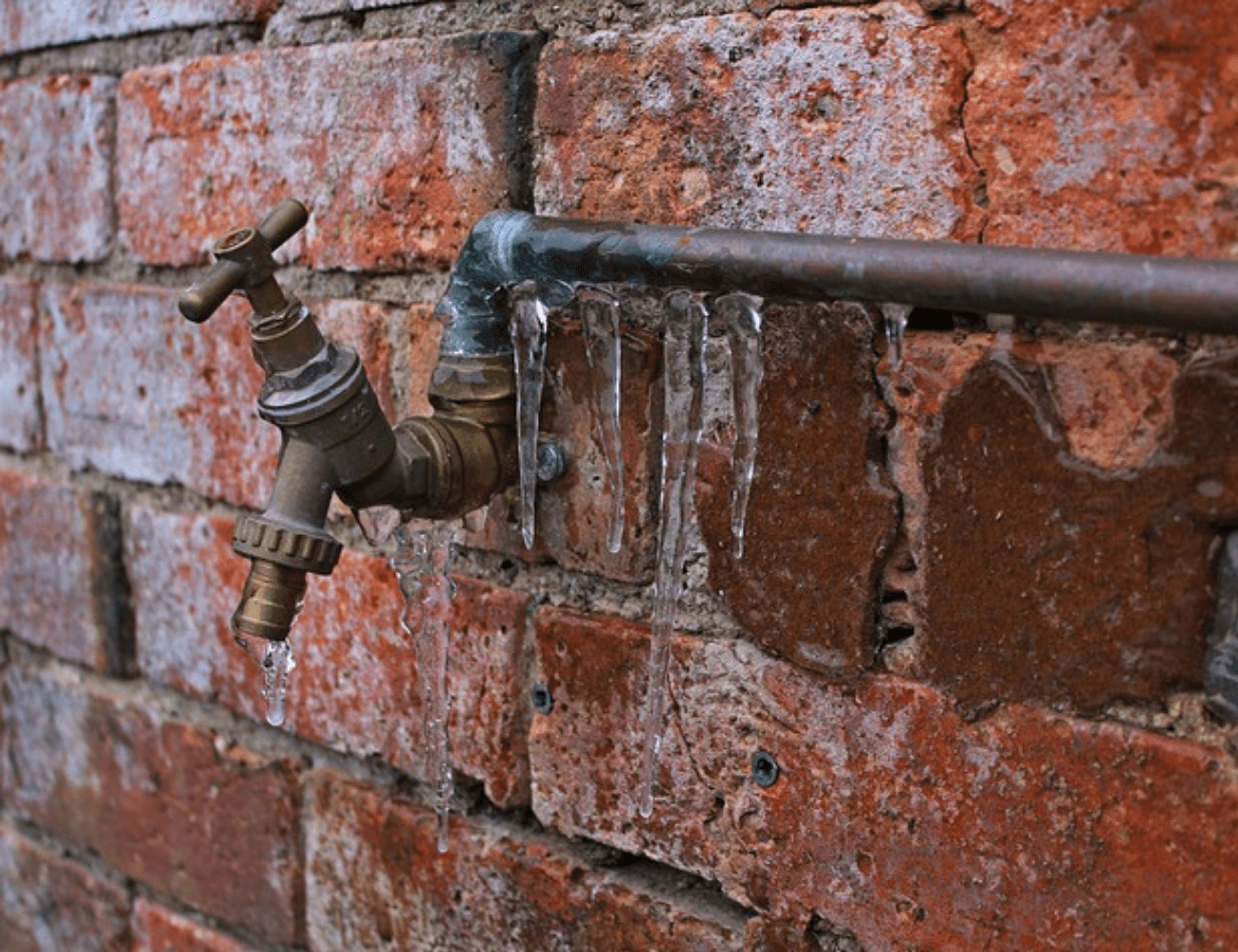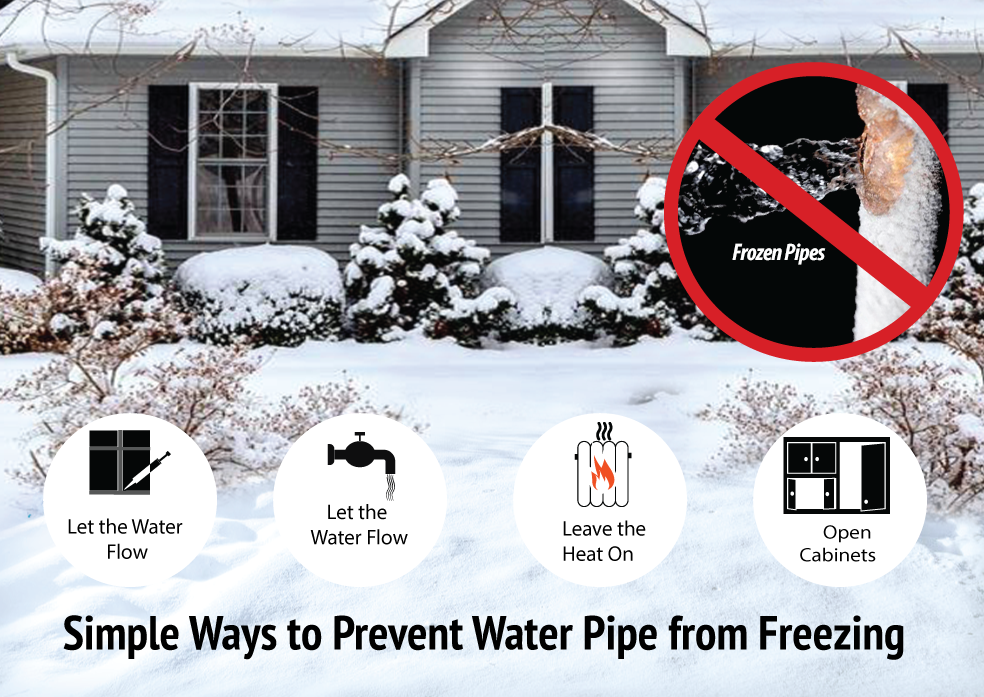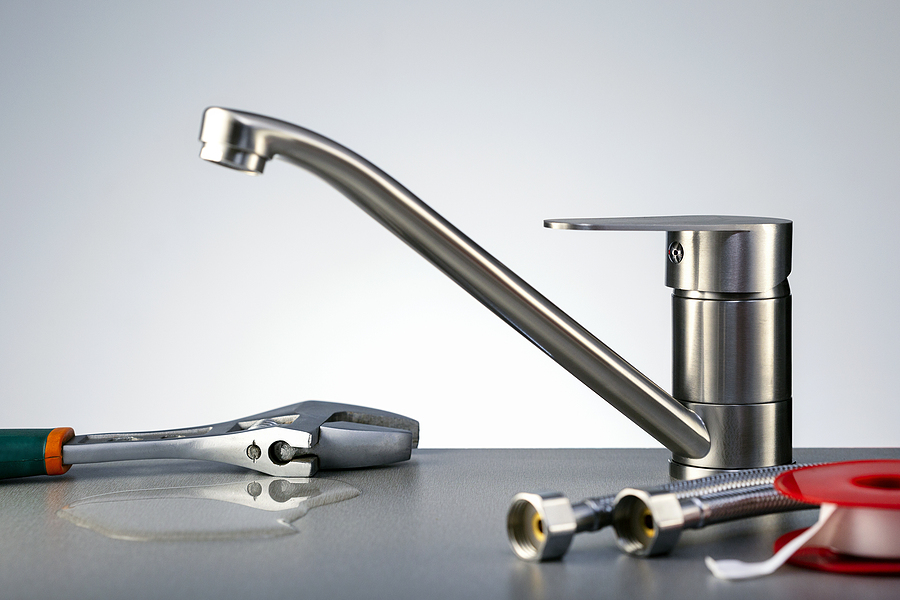Looking Good Tips About How To Keep Your Pipes From Freezing

Go to every sink in your home and open the cabinet doors.
How to keep your pipes from freezing. Insulation will maintain higher temperatures in these areas. Water mains (pipes) are more likely to break during colder weather.if you see the ground buckle with water coming up from the street or sidewalk or water running down. Winterizing your home and landscape is crucial when determining how to keep outdoor.
Pipe insulation acts as a protective shield for your pipes, preventing the extreme cold from freezing the water in them. First, you want to thaw gradually since rushing could cause greater thermal shock and still result in a break in the pipes. Disconnect garden hoses from outdoor faucets.
Leave a faucet on. A tiny trickle from faucets makes freezing less likely, protecting pipes in two ways. When you have the heat going, open up cabinet doors in the kitchen and bathrooms.
If you have exposed pipes inside closets or pantries, leave doors open. Open vanity or cabinet doors so warm air can reach the pipes under sinks. 13 tips to prevent frozen pipes this winter.
Open the cabinets under your sink to improve air flow. Pipes in unheated exterior walls, basements, crawl. Insulate water pipes one of the best things you can do to stop frozen pipes is to insulate them.
Generally, exposed pipes are the most prone to freezing in the winter. Be prepared for main breaks. Starting from the middle of the.
Add insulation to attics, basements and crawl spaces. Let warm water drip overnight when temperatures are cold, preferably from a faucet on an outside wall.
Use pipe lagging and prioritise spots that are particularly exposed to the cold, such as external pipes and those that are located in the loft or cellar. So you must do all you can to keep your pipes from freezing. It turns out there’s a way khachani recommends to specifically keep your pipes at a temperature that will protect them from freezing:
This way, warm air can better reach the pipes in or behind the cabinets. Second, you want to work backward from the faucet or other outlet, since that thaws the area of the pipe that can then flow out the faucet; Hot air has trouble making its way into your cabinets where your exterior pipes lead inside.
Pipes won’t burst when there is no water in them. What happens when pipes freeze? This is especially important if your sinks are on an exterior wall.

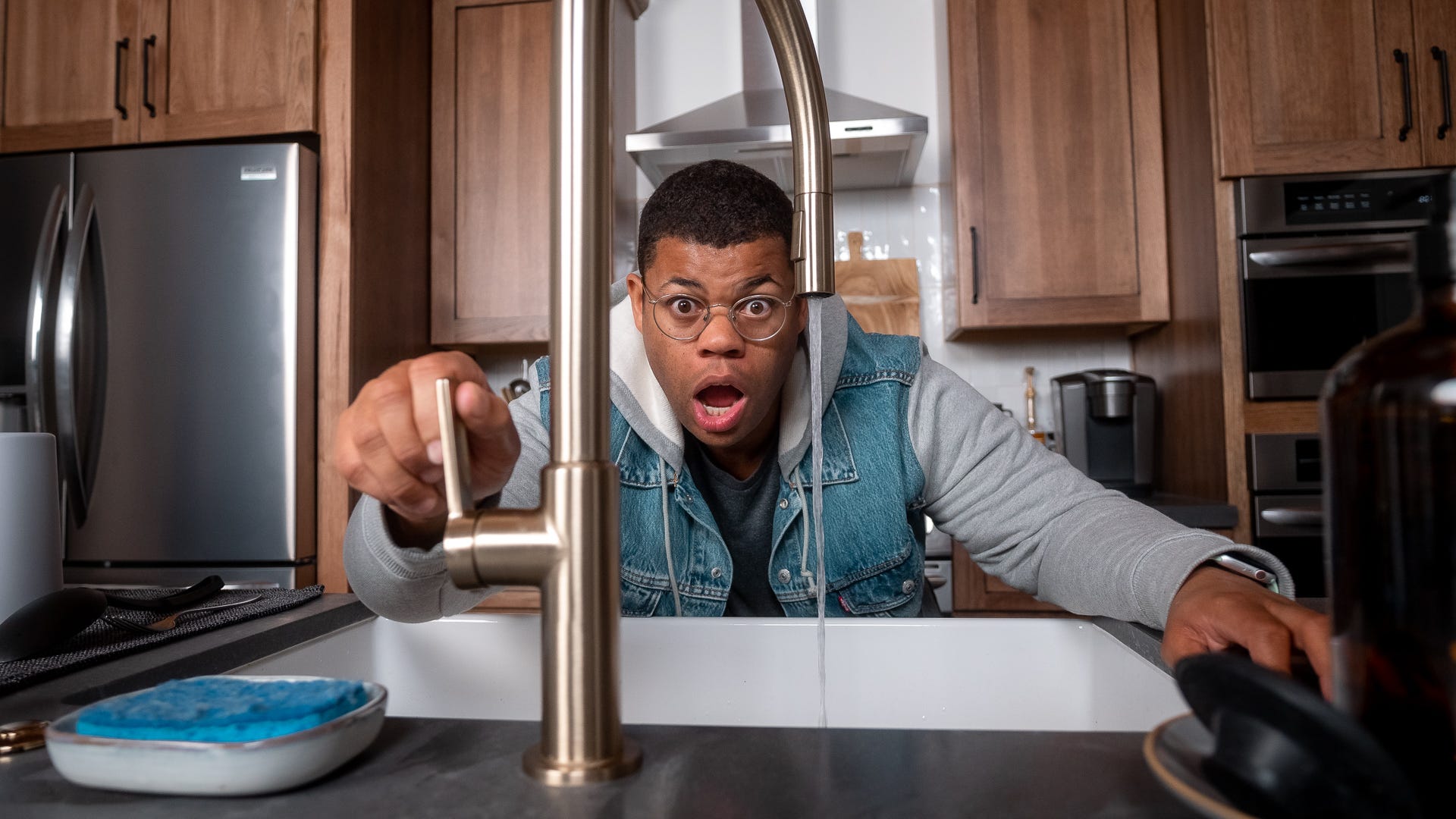


:max_bytes(150000):strip_icc()/stop-freezing-pipes-2124982-revision1-5c01a886c9e77c0001439273.png)
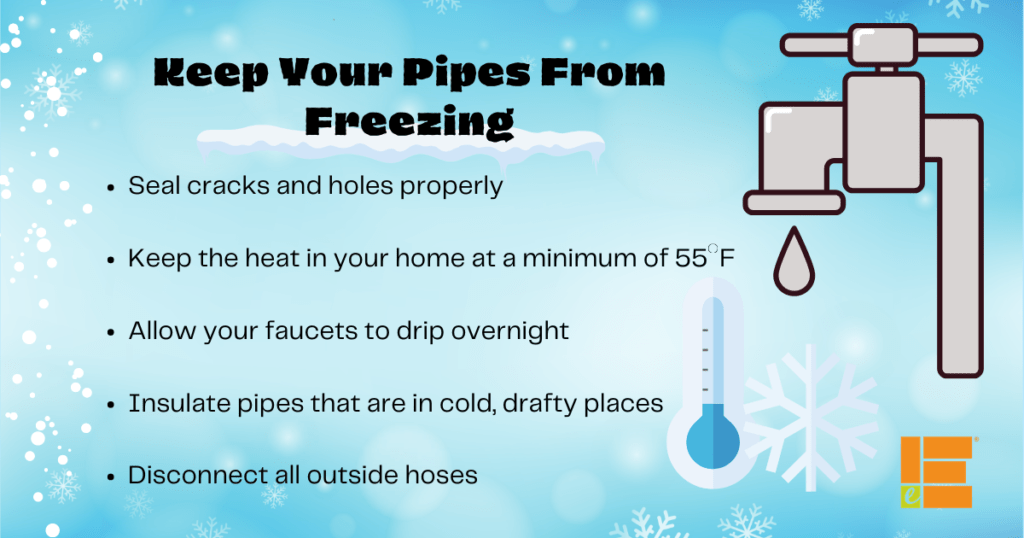
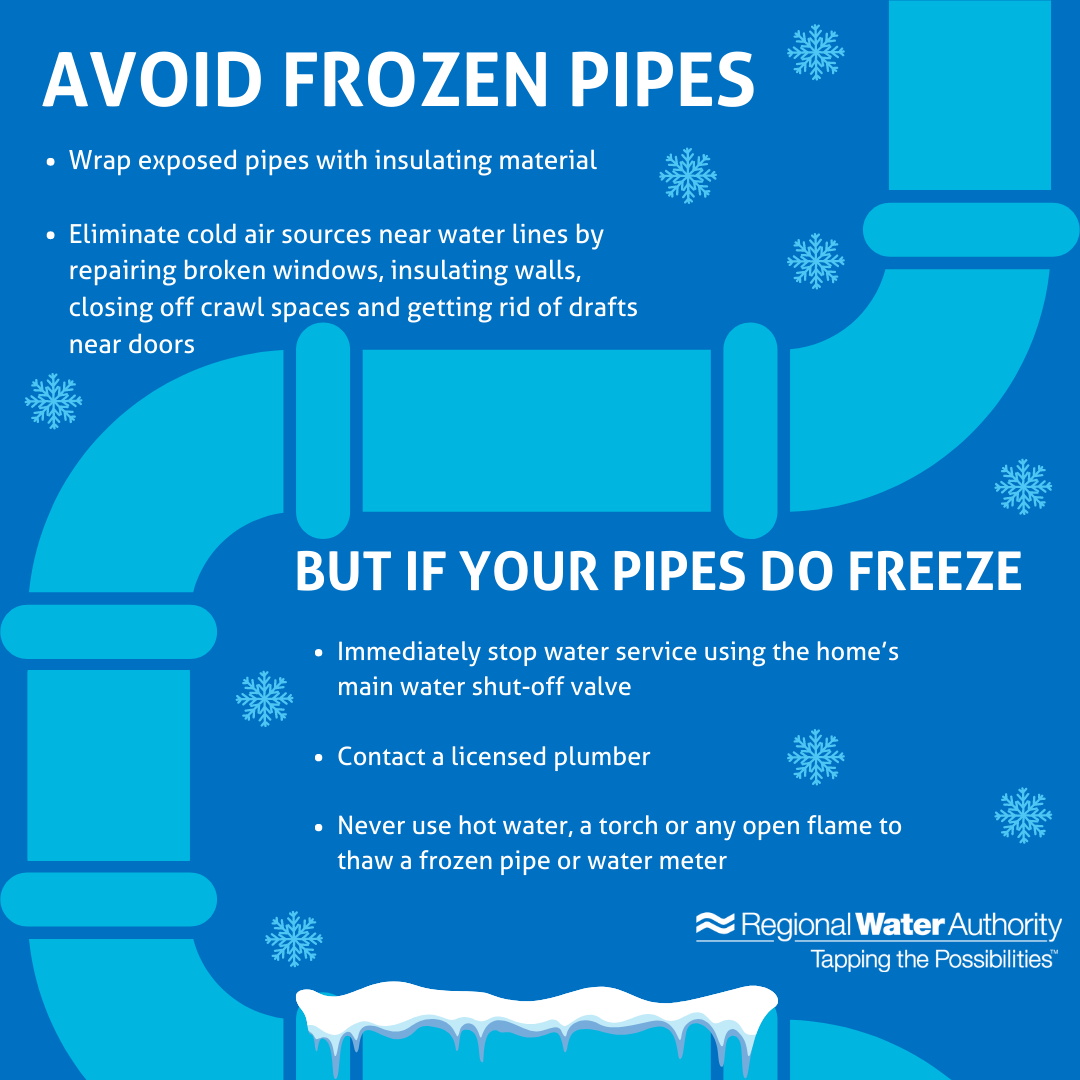


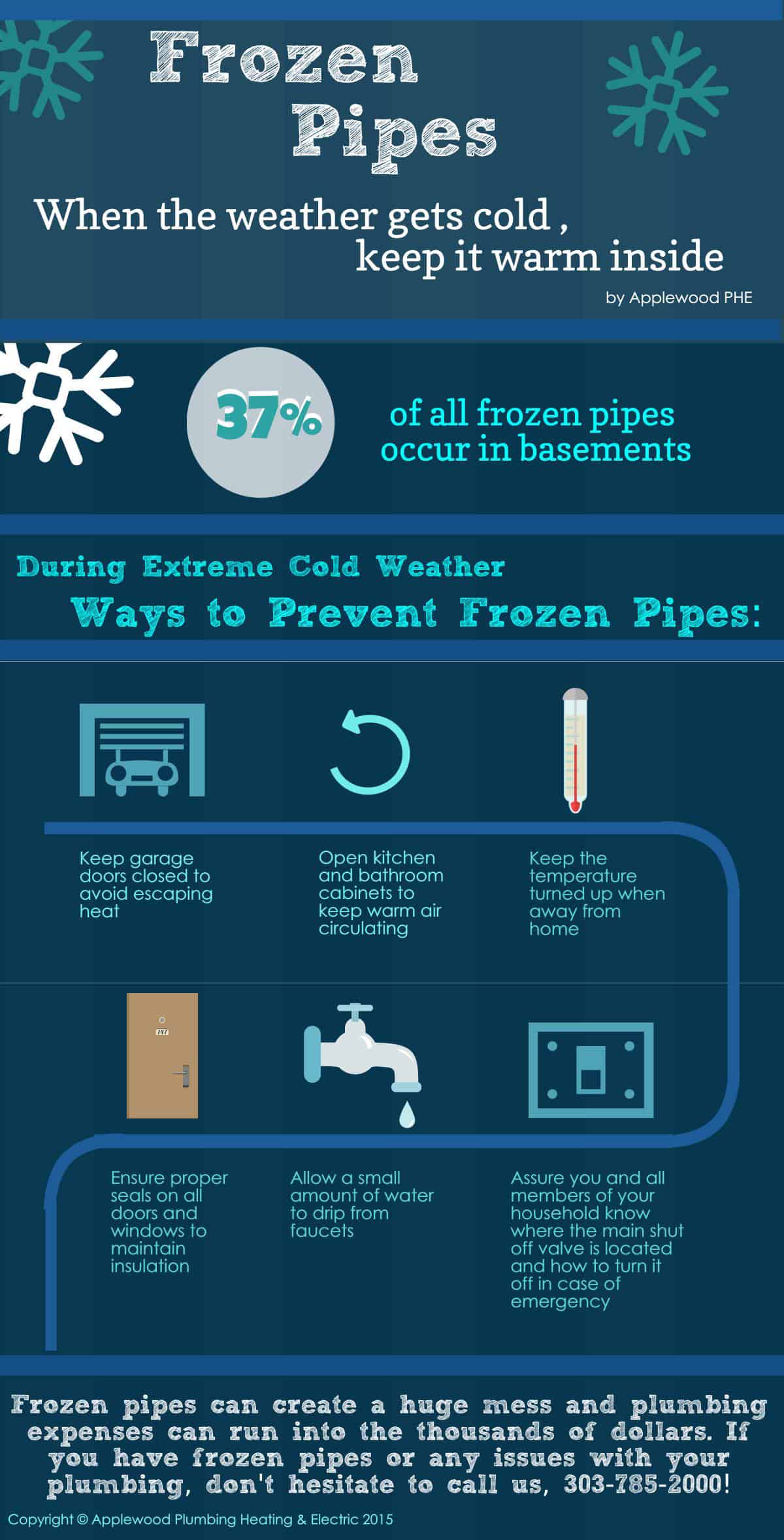
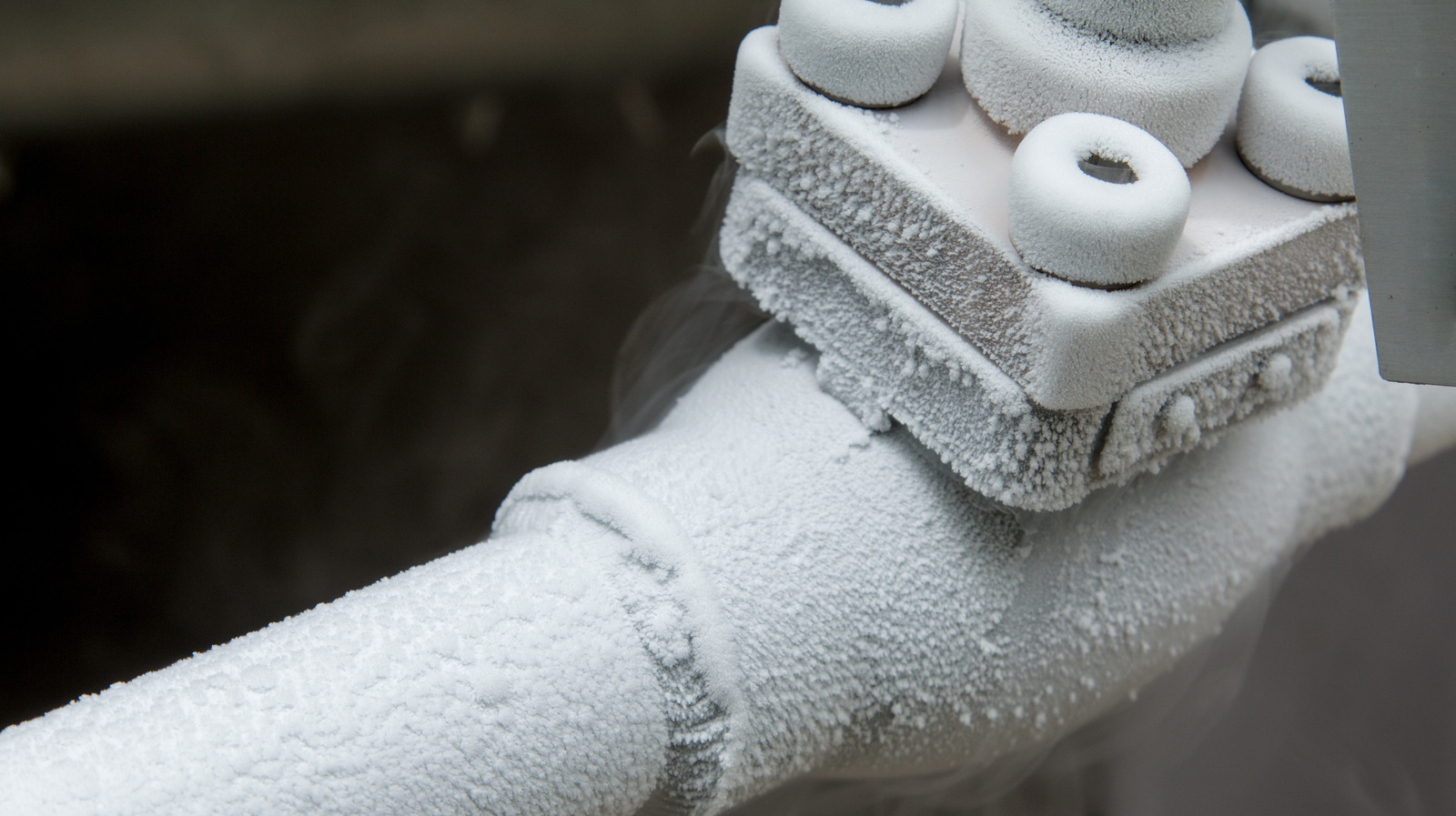

![Keep Your Pipes from Freezing This Winter [Infographic] Travelers](https://www.travelers.com/iw-images/resources/Individuals/Large/home/maintenance/how-to-prevent-frozen-pipes-infographic.jpg)
